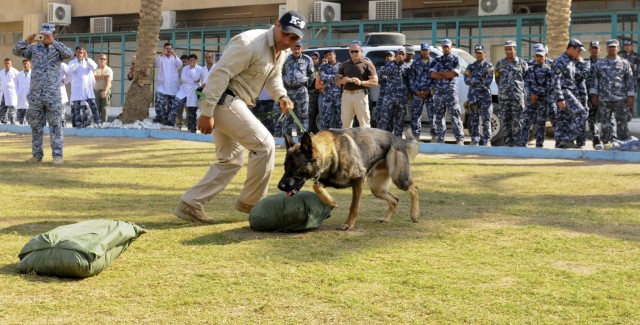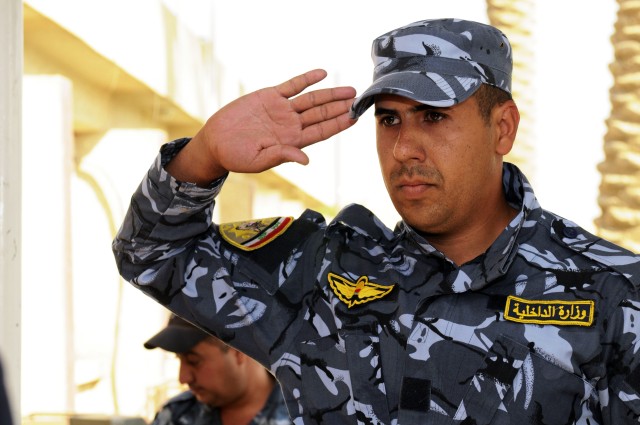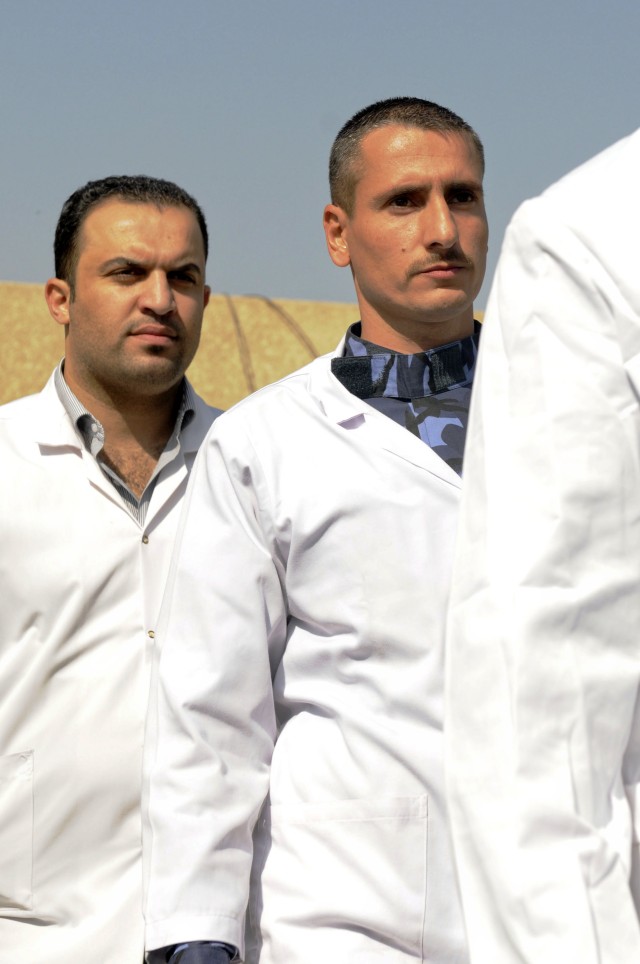BAGHDAD -- The Iraqi Police Canine Program and Canine Handlers School certified 26 explosive-detection dog handlers, 14 veterinarian assistants, and three veterinarian doctors at the Baghdad Police College Nov. 7.
These graduates will now return to their provinces, where they will work as explosive-detection teams, and serve at several security checkpoints throughout Iraq.
The purpose of the IP's two-month Canine Program is to familiarize professionals in the veterinary field with basic canine anatomy and psychology, and provide hands-on instruction, said Ministry of Interior Veterinary Advisor Hashim Alsafi, a Baghdad native.
The course also provides veterinarians with more advanced lab techniques, diagnostics and common disease prevention, Alsafi said.
The Canine Handlers School certifies Iraqi Police as designated explosive-detection dog handlers upon completion of a 45-day certification program with Iraqi master canine trainers.
This is the fourth cycle of canine handlers to graduate from the this course, which has fielded 164 explosive-detection teams, said U.S. Army Capt. David Yenne, a canine advisor with the United States Forces-Iraq's Iraq Training and Advisory Mission-Ministry of Interior.
Iraqi Police have achieved many successful proactive operations since canine units were introduced to the Iraqi Police force, Yenne said.
Alsafi said he is also happy with the progress of the Iraqi Police Canine Program and the continued support it receives from the United States and Iraq's MoI Canine Directorate.
"All the provinces that have dogs are happy and are successful in finding explosives," said Brig. Gen. Dr. Mohammed Moshb Jahr, the director of MoI's canine unit. The Iraqi Police Canine Program has proven to develop effective explosive-detection teams.






Social Sharing